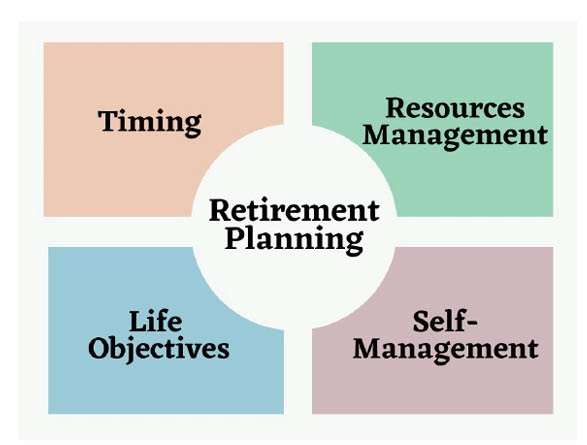Last week, we took up the principles of personal finance for retirement. Today, we will begin to take up financial concepts and planning practices in the first pre-retirement phase of a person’s working or business career.
Previously, we identified three major phases in our career lives. These phases are the first phase (from year ‘0’ to ‘10’), the second phase (from year ‘11’ to ‘30’) and the last phase (from year ‘31’ to ‘35’). This presupposes that we spend some thirty-five years in our active career lives. But we know that individuals spend more or less for various circumstantial reasons. Similarly, the 10-, 20-, and 5-year respective phases will not necessarily apply to everyone in the same way. For instance, some people can achieve in the first five years what some may not in the whole thirty-five. So, these phases are not in any way cast in stone and we should plan as it suits us as individuals. The guiding principles will apply to all of us, but the practices may differ from one person to another based on their individual realities.
As mentioned previously, during the first phase of a person’s career, their focus will be likely on ‘setting’ themselves up. In addition, it should also be on learning their trades. From the perspective of setting themselves up, this may involve getting a rental apartment and furnishing it; buying a first car which may be needed in the absence of a functional public transport system or simply because of the demands of the job; getting married and beginning to raise a family, etc.
Professionally, the first phase is a demanding period because we may have just been out of school and now need to learn the ropes of our business or professional practices. We need to be highly propensed to learning from our seniors and more knowledgeable and experienced persons; We will need to be humble and voracious to learn new things and ways. It is a period when we must work smart mentally and hard physically. It is a phase to begin to build lasting professional relationships.
This is a phase in which an individual can either begin to set what happens for good or equally hurt what may happen in the subsequent phases. Thankfully, it is also a stage within which recovery from errors, innocent or otherwise, is also reasonably easy.
Successfully achieving the twin objectives of setting ourselves up and learning our trades or professions within the first few years of this phase deserves a pat on the back. From a financial planning perspective, we need to achieve the following in the phase:
Remember that you will retire! Regardless of whether you are an employee in the private or public sector or you are running your own business, you will retire in some years to come. The earlier we internalise this and begin to think and act accordingly, the better we will get many things right during our careers and towards our retirement.
Being alert to this future reality in a positively mindful way will help bring into consideration long term perspectives to our thinking on issues while at the same time being prudent in our daily grinds. I am sure not a few elderly persons look backwards and regret that they should have done at least a few things differently that would have helped their retirement planning. Persons still in this phase who start planning for retirement early will likely have a significantly different expense and investment structure than those who do not.
Be financially literate: Financial literacy is about acquiring the knowledge and skills that should positively shape our mindset and behaviours in helping us to make informed decisions regarding money matters. In our context and for our retirement planning purpose here, financial literacy should also include a good understanding of the workings of the local economy and what is happening globally that may affect us.
To help plan for retirement, individuals in this phase should put in a conscious effort to be financially literate. This involves getting the requisite education, not necessarily by going to formal schools, but through wide readings, learning from knowledgeable and experienced persons, attending short courses, etc. Beyond working to build our knowledge here, we will need to sharpen our skills by gradually investing in assets and businesses we may be interested in, as may be allowed by our terms of employment, and which offer opportunities for desirable rewards.
Have a plan! I honestly think one of our great undoings as individuals and as people is that many of us don’t have well-thought-out plans for the things we want to achieve even in a day. This hurts us in incalculable ways. Many of us just wake up in the morning and begin to think about where to go and what to do in the hope that ‘something’ will happen. Yes, things do occur sometimes by accident of happenstance but that is not the way to enduring success.
Developing a plan helps us to think through issues; get facts that may help us see opportunities and alter our prejudices; motivate us; help us to attain focus and enhance our efficiency of doing things; establish timelines for achieving targets, etc.
Next week, we will discuss specific actions persons in this phase should be taking. This will include first-level retirement planning through the defined contribution pension schemes, identifying and seizing investment and business opportunities, expense management, cash flow management, getting married, education planning for children who may just be toddlers at this phase, etc.

 Join Daily Trust WhatsApp Community For Quick Access To News and Happenings Around You.
Join Daily Trust WhatsApp Community For Quick Access To News and Happenings Around You.